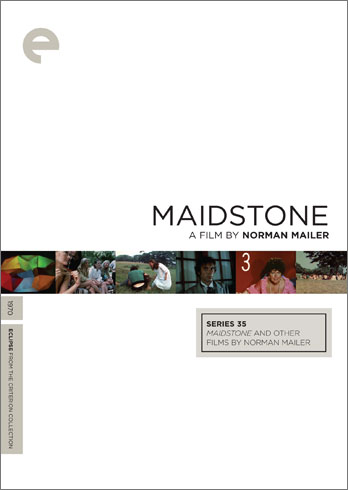
This week’s column basically serves as a mop-up job for a few things I either forgot to say or wish to clarify further in the aftermath of recording Episode 5 of The Eclipse Viewer podcast over the weekend. Robert Nishimura and I took a couple hours out of our busy lives this past Saturday to blast our thoughts about Eclipse Series 35: Maidstone and Other Films by Norman Mailer first to each other, and ultimately, to YOU. I haven’t heard the recording yet (Rob’s still in the process of editing it) but from what I recall, it was a fun and free-wheeling conversation, as closely in sync with the spirit of the Summers of 1967-68 as Rob and I could approximate some four and a half decades later. After reviewing Wild 90 and Beyond the Law over the past two weeks, all that remains is the box set’s main offering, its marquee attraction you might even say: Maidstone, a “cult film” if there ever was one, chock full of infamous, notorious and naughty bits that established its quasi-legendary reputation among fans of vintage 60s underground cinema.
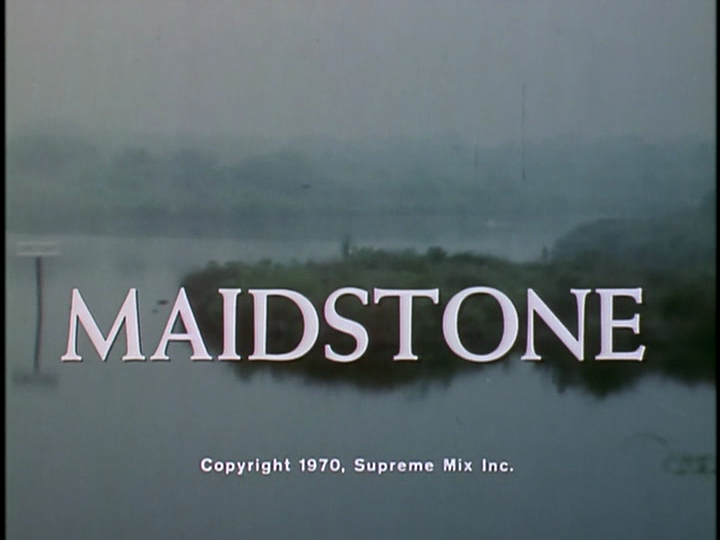
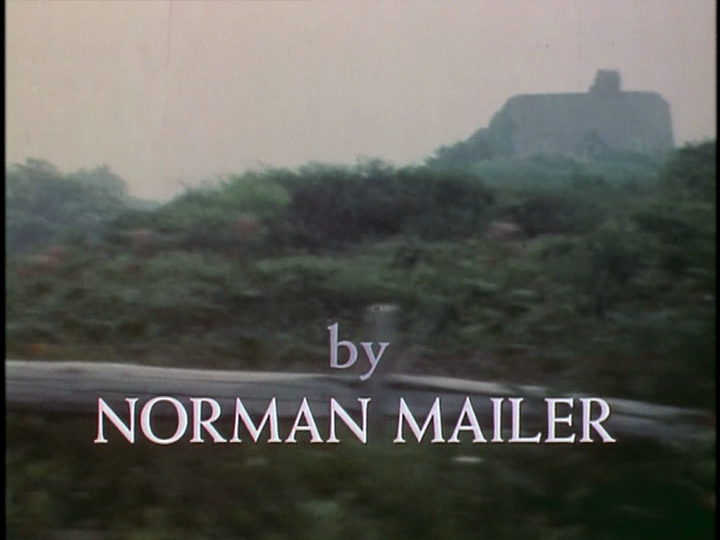
Those who are even slightly aware of Maidstone‘s reputation might be easily forgiven for assuming that the film is named on account of the flock of nubile women who appear on screen under some kind of influence or another. For the record, the title is derived from the location where the film was shot, one of two estates out in the Hamptons that Norman Mailer and his cohort were given free access to over the course of a summer’s week in 1968. Anyone familiar with American history of that era doesn’t have to think too hard to understand that these were tumultuous days. Martin Luther King Jr. had been assassinated a few months earlier, Robert F. Kennedy’s life would soon come to its end, Vietnam War protests and inner city riots across the USA were erupting at full boil and the political conventions sponsored by the Democratic and Republican Parties were on the verge of galvanizing the nation into a state of livid polarization that makes even this year’s fear-fraught presidential campaign seem fairly mild by comparison. The political sensibility that informs Maidstone must be taken into account before any serious attempt can be made to make sense of the chaos it reveals.

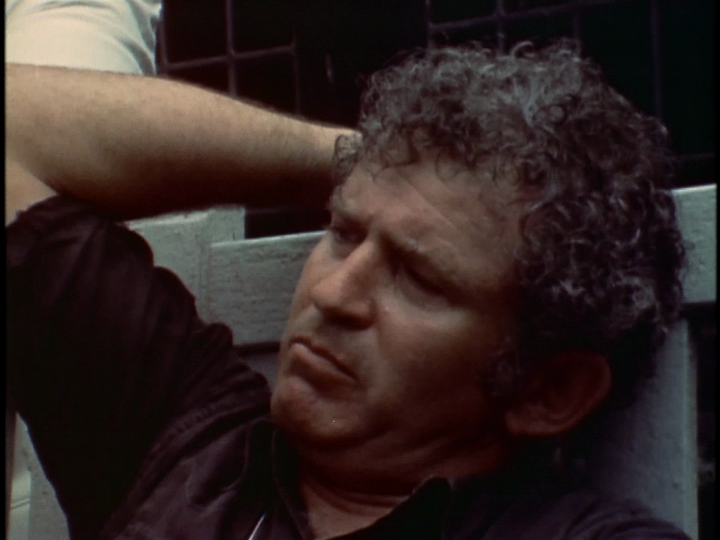
Like it’s predecessors in Mailer’s directorial career, Maidstone serves up a sprawling mess of pugnacious observations and absurd scenarios under the pretext of a loosely improvised, only semi-coherent storyline. Here, the concept is Mailer playing a film director turned politician, Norman T. Kingsley, who’s about to start shooting his latest art house/softcore porno film even as he’s in the midst of an implausible longshot campaign for President of the United States. As a proverbial loose cannon who’s just crazy enough to possibly win the popular vote in a time when society finds his brand of craziness appealing, the national security apparatus are hastily drawn together to figure out how this potential menace can be efficiently eliminated. Kingsley, though vaguely aware of the coalescing threat to his life, is largely unconcerned – or rather, it’s safer to say that he’s more preoccupied with the pressing matter of convincing his young starlets of the need to undress before the camera in order to fulfill the aesthetic demands of the scenario he has envisioned.
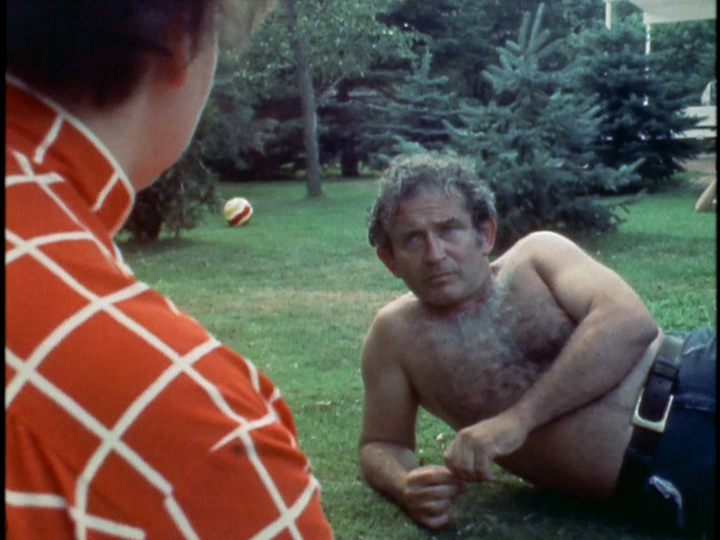
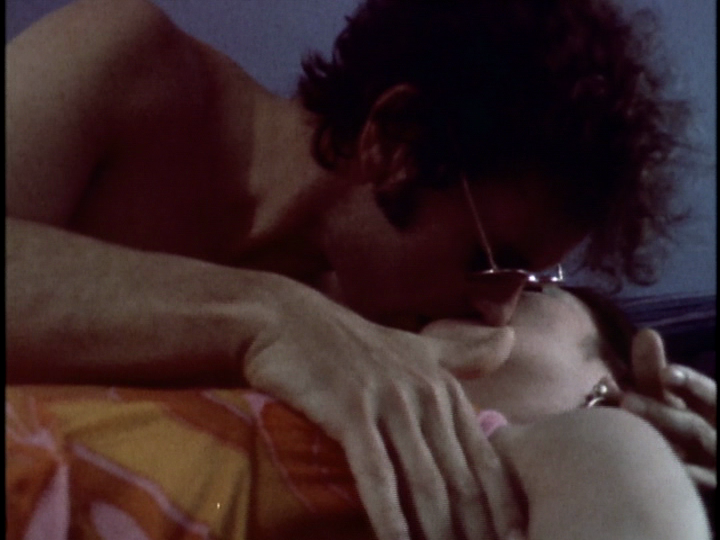
As a preternatural master of the art of word-spinning, Mailer is by far at his most relaxed and convincing in his Maidstone performance when compared to the roles he crafted for himself in Wild 90 and Beyond the Law. Of course, as both an actor and director, he’s significantly more experienced by this point, having learned from a plethora of mistakes he made in those earlier efforts. But I think he also improved his chances for success by moving outside of the criminal/cop paradigm of those earlier films into a more nuanced arena. The juxtaposition of auteur and populist leader that Mailer poured into the Kingsley character seems like a stroke of genius and a fitting outlet for the author’s own finely-honed megalomania. And Maidstone‘s multiple forays toward the cutting edge of sexual explicitness on film for its time effectively puts today’s viewer in touch with a singular transformative moment in American culture, just when such taboos were being shattered, for better and for worse as far as their longer-term cultural implications are concerned.
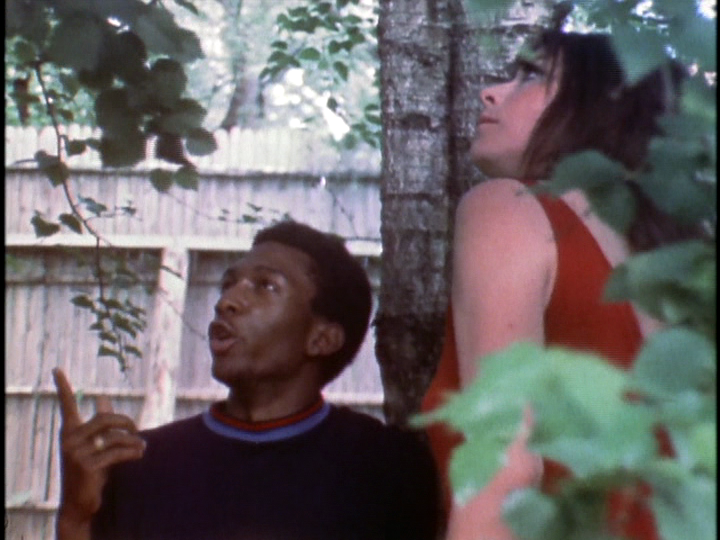
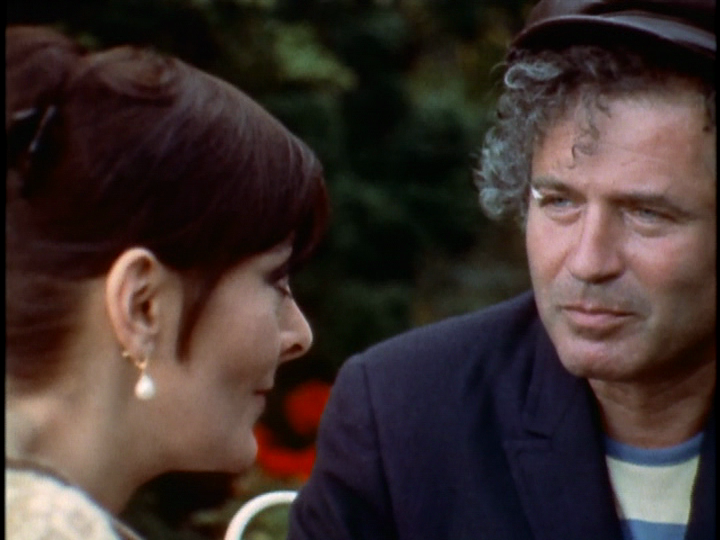
And if the fire isn’t already burning hot enough, Mailer’s perfectly willing to throw even more fuel into the conflagration. What would a radical 60s avant garde American film be without some representation from militant Afro-Americans who bring their concerns about race relations into the mix? Confrontations between blacks and whites stand alongside verbal altercations between blacks and other blacks as well, not to prove any particular point but almost as if to just merely provide a raw, if mostly rhetorical, document of the racial tensions that existed at the time.
Likewise, Mailer is bold enough to include some thinly veiled bits of autobiography by allowing a few of the prominent women in his life to appear in the film. Ex-, current and future wives play a part in the story, serving as ample proof of Mailer/Kingsley’s quote in the film that “the only thing that gives me pleasure is being absolutely without shame.” The more you learn about Norman Mailer, the more indisputably true that statement becomes.

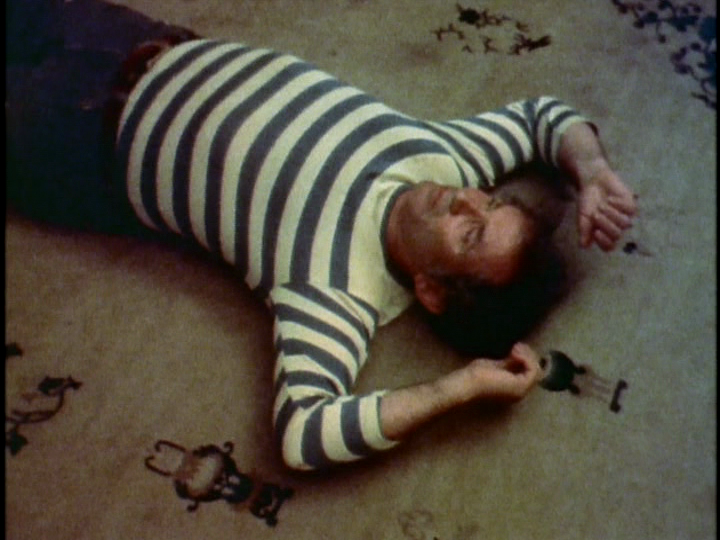
As an archive of an era in which a generation of influential Americans were shedding a millennia’s cumulative inhibitions over a tightly compressed span of a few years, or even months, Maidstone‘s intoxicating blend of metaphorical fiction and non-simulated cinema verite is almost without parallel. Mailer identifies himself as a catalyst who lets forces loose, and I’m easily persuaded that the statement holds true whether or not his catalyzing powers were adequately captured on film. He was not merely willing, but indeed highly intent upon gathering the most volatile elements around him and hitting the “GO” button, pumping up the action with whatever combination of drugs, hormones and adrenalin were available in a given moment. (And just for trivia’s sake, that’s future Fantasy Island star and James Bond villain Herve Villechaize playing the piano in the upper right image.)
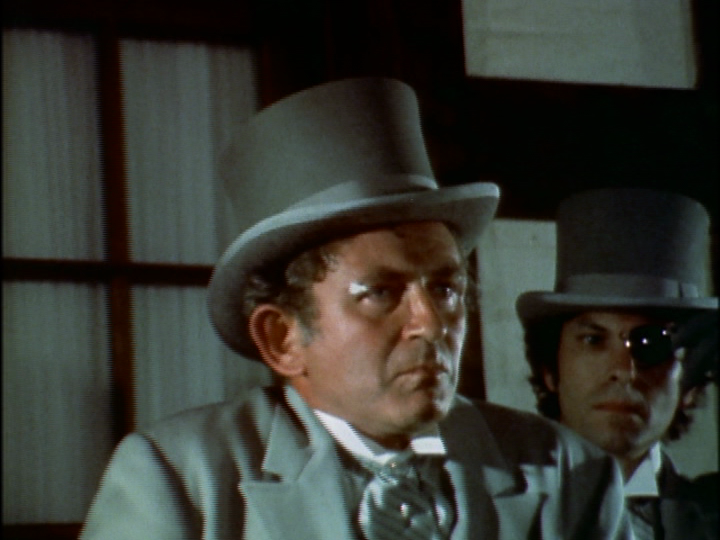
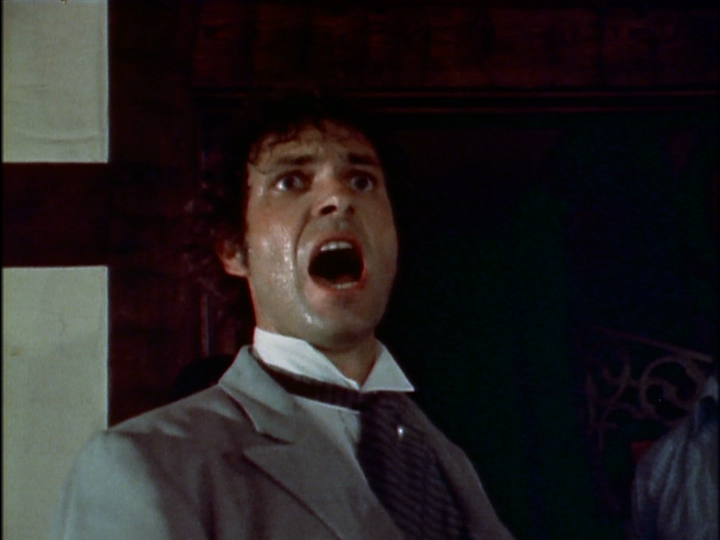
While most of Maidstone‘s scenes take place out of doors and in various stages of informal attire (or the lack thereof), the film’s intended catharsis was planned to take place at an elaborate ceremonial ballroom reception. In its own way, the scene is reminiscent of something Bunuel, perhaps the Marx Brothers or Three Stooges might have staged – a classy dinner in which the guests are dressed up in their silken fineries and important pronouncements are anticipated, only to see all hell break loose. The original scenario called for Kingsley’s assassination after the affair had reached a fever pitch, but the chemical imbalance proved to be too unstable – some kind of fiasco erupted prematurely, only partially captured on film as we see a man being violently restrained for what looks to be totally serious, unfeigned reasons. According to Mailer’s operational principles, there was no room or reason for a retake. So the main filming of Maidstone seemed to have come to its end, with no clear sense of how the narrative arc, such as it was, would be resolved.


Given that the cast and crew hadn’t fully dispersed, or perhaps more importantly, that cinematographer D.A. Pennebaker hadn’t completely run out of film, the cameras kept rolling even as Mailer and company fell out of character and resumed behaving as themselves once again. (Hey, the booze and drugs had to wear off eventually… as the saying goes, “what goes up, must come down.”) Above we see Mailer’s then-wife, Beverly Bentley, former weather-girl, game show model and future bit player actress in C.H.U.D., of all things. She plays a crucial role in each of these Eclipse films, the only person capable of (at least temporarily) putting Mailer’s monstrous ego in check as she confronts him with the magnitude of his duplicity and philandering. But even those humbling moments prove to be short-lived, as he is simply too enamored with himself and eagerly surrounded by flatterers and sycophants ready to stroke him for the sheer kicks of lingering in the afterglow of his incendiary aura.


So in lieu of a proper tying up of loose ends to Maidstone‘s frenetic storyline, we’re instead treated to an impromptu director’s commentary delivered within the film itself, in which Mailer explains as best he can his intentions of creating a film that more truly reflects real life as it incorporates the spontaneous input of multiple perspectives, rather than the carefully scripted designs of a unified creative imagination as movies are usually made. The extent to which he succeeds in this quixotic endeavor is debatable, perhaps, though one could easily assert that he simply didn’t. However, many of us will find the haphazard results pretty damn interesting, regardless. Especially once we recognize the full magnitude of that conspiratorial gleam in Rip Torn’s eye as he ponders his next Judas-like move while watching Mailer deliver his ambitious and self-congratulatory sermonette.
[youtube http://www.youtube.com/watch?v=6AzmhorISf4&version=3&hl=en_US&rel=0]
The clip embedded above serves nowadays (and justifiably) as Maidstone‘s claim to lasting notoriety. In it, we see Rip Torn assault Norman Mailer with an ordinary toolbox hammer for the purpose of delivering the film’s “necessary” conclusion – the long-contemplated but yet-to-be-accomplished assassination of Norman T. Kingsley. In its way, the segment serves as the “Altamont” to the ballroom scene’s “Woodstock” which itself was the epilogue to the hedonistic reveries of the film’s earlier “Summer of Love”: a downward spiral from groovy wanton indulgence to warped bacchanalia to brutal violence. The raw intensity of seeing Torn and Mailer literally tear into each other, while Mailer’s wife, children and camera crew look on in horror, makes for a compelling spectacle that multiple viewings only intensify. Still, I think that the full impact of the moment can’t really be felt without exposure to the 75 minutes or so of footage that preceded it. And just as fascinating as the punching, biting, choking and slapping bits that occur is the dialogue between Mailer and Torn after the melee is broken up and each man continues the fight in verbal, conceptual terms. Though explosively waged on a visceral level at first, the conflict is, at heart, one of ideas (and almost certainly of varying degrees of intoxication on the part of both men.) Mailer, in this circumstance, is the literary celebrity and cultural icon, dabbling in cinema as an experiment but not quite willing to commit himself whole heartedly to the discipline of its craft. Torn is the trained actor brought in to lend credibility and insight to the project, representative of a younger generation, fearless (and high) enough to call the dilettante Mailer on his bluff. The traumatic eruption of intrusive reality gives Maidstone its capstone, consummating Mailer’s avant garde experiment not just in this film but the trilogy as a whole with this bracing reminder, as real as a hammer blow to the head: that the authentic pursuit of truth through art is not a trifling matter to fuck around with.



